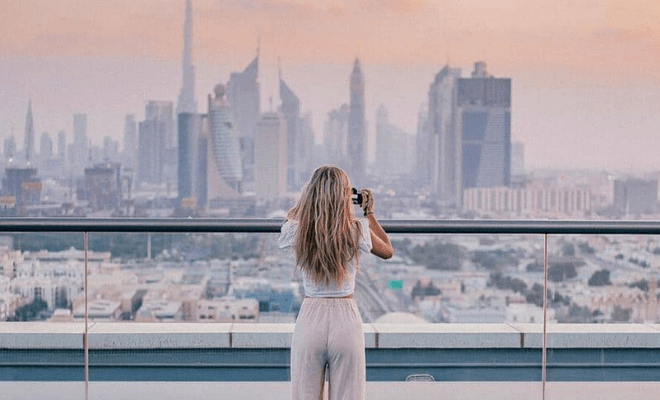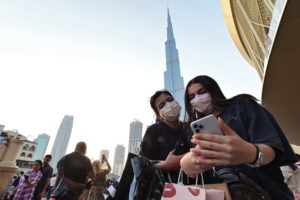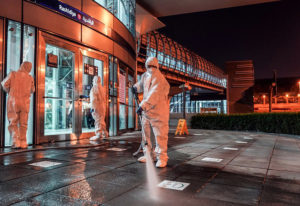How Dubai is paying the price for letting in tourists

If you take a quick look around Dubai, you may think everything is back to normal. In recent weeks, the bustling city has been a dazzling attraction for tourists, especially those from Europe, seeking to escape the harsh winter and strict coronavirus quarantines. Despite measures aimed at restricting the virus’s spread, the virus finally caught up with the city as tens of thousands of tourists flocked there during its peak year-end season. Since November, the number of cases has nearly quadrupled.
As Covid-19 grew in popularity, images from Dubai, especially from the Instagram accounts of influencers and celebrities, painted a picture of a wide-open winter sun paradise. These photos triggered consternation for those back home in countries like the United Kingdom, where most people are advised they cannot fly abroad due to health risks, attracting condemnation of those affected.
Dubai’s transparency is obviously facing external obstacles, with a recent UK travel ban effectively cutting off what had recently been the world’s busiest airplane path — a problem that has triggered a rethink of Covid-19 steps. However, the emirate is determined to keep its tourism-dependent economy afloat, and officials are unconcerned about recent negative publicity, claiming that standards of compliance with Covid-19 safeguards have thus far exceeded expectations.
- ‘Inevitable’ spike

The number of cases in the United Arab Emirates rose by 80,000 to over 290,000 last month, with more than 4,000 cases registered every day, placing hospitals under pressure. According to some researchers, the blame for the increase should not necessarily be laid at the feet of visitors. Around 85 percent of the city’s residents are expatriates, many of whom returned home in December or attended local Christmas or New Year festivities to make up for canceled trips back to see their families.
“Many countries are now witnessing a rise in the number of cases, and many of them have been highly restrictive in opening their ports of entry,” says Ahmed Mohamed Abdelhamid, an internal medicine specialist at Dubai’s Medcare Women and Children’s Hospital. Dubai’s lockdown was one of the first and hardest in the world during the early stages of the pandemic.
Residents were only permitted to leave their homes for medical emergencies, food shopping, or important work during the lockdown.
- Stricter penalties

According to Al-Marri, pragmatism continues to direct Dubai’s COVID-19 policies, and new initiatives will be tested for effectiveness as the city’s economy continues to grow. “We shut down when we needed to, and we’ve been following the data since we reopened,” he says.
The capacity of beach clubs, hotels, and shopping malls is limited to 70%, while cinemas are limited to 50%. Bars and pubs have been temporarily closed, and lawbreakers will face tougher punishments. It’s an issue that governments all over the world are struggling with how to strike a balance between keeping the economy open and keeping people safe.
- Safety before profits

Vaccinations are now an integral part of the equation in the United Arab Emirates. The country has one of the highest Covid-19 vaccination rates in the world, with over four million doses administered to a population of ten million people. The government plans to vaccinate half of the population by the end of March. 2021 is a crucial year for Dubai, both economically and in terms of tourism. After being postponed for a year due to the pandemic, the city is expected to host the World Expo in October.
That is why it is important that services continue to work. Some Dubai business owners, such as Ghazzawi, hold this perspective.
“It’s a gradual opening up, but depending on what’s going on, it could be a full shutdown in a heartbeat, which I think sends the message that Dubai is safe because they’re not afraid to make quick changes if necessary.”
Source: CNN Travel












